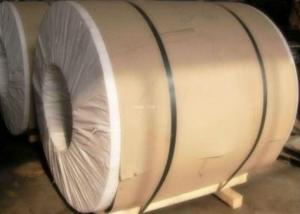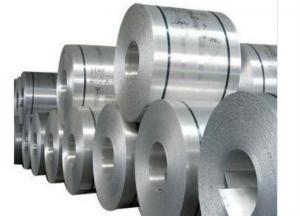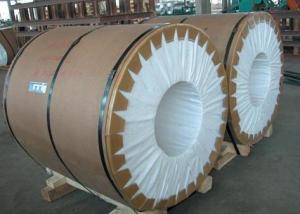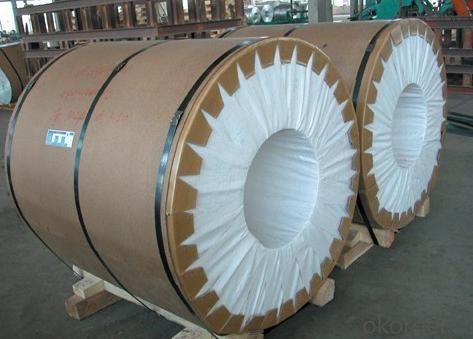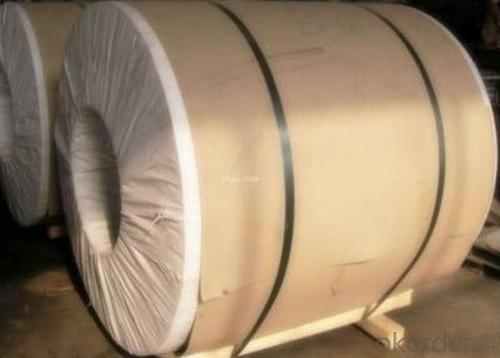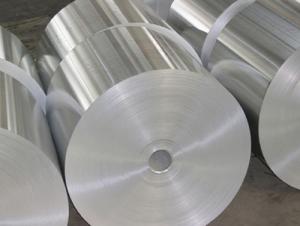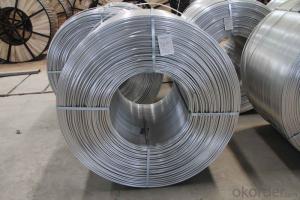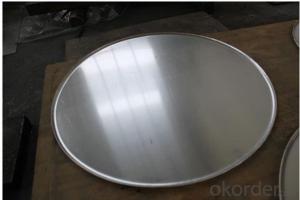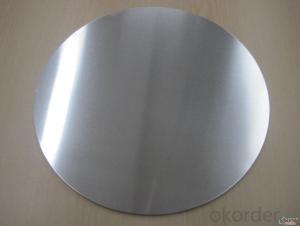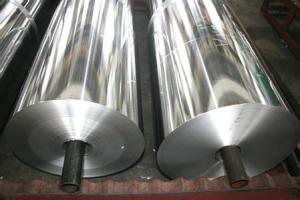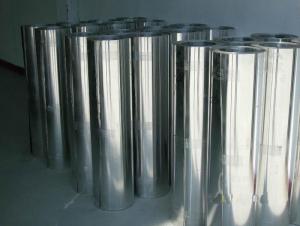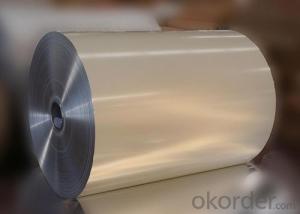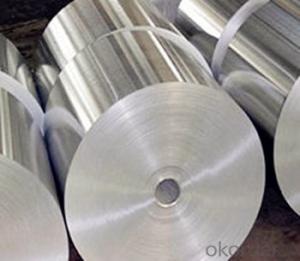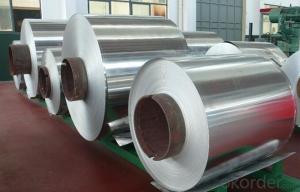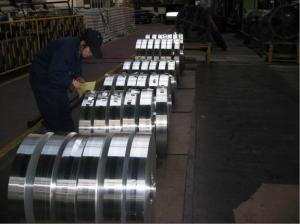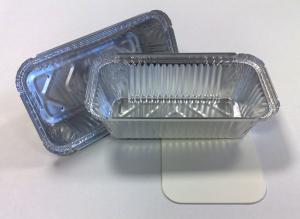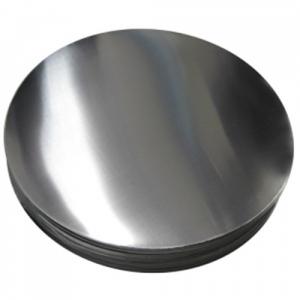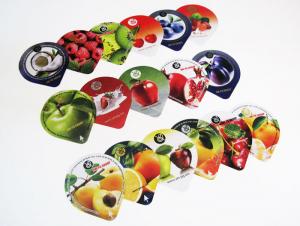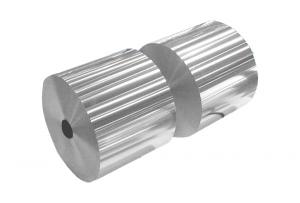Aluminum High Quality Aluminum Foil Stock
- Loading Port:
- China Main Port
- Payment Terms:
- TT or LC
- Min Order Qty:
- 20Tons m.t.
- Supply Capability:
- 10000Tons Per Month m.t./month
OKorder Service Pledge
OKorder Financial Service
You Might Also Like
Quick details of High Quality Aluminum Foil Stock
Alloy: 8011
Temper: H14/H16/H24/H26
Specifications of High Quality Aluminum Foil Stock
Thickness & Tolerance: 0.28 mm - 0.3 mm (+/-0.01 mm)
Width & Tolerance: 1000-2020mm (+/-1 mm)
Core I.D: 405/505/508mm
Surface Quality: good appearance with no-crack and well-distribute grain.
Build Up: tight slit edges free from cracks, layer to layer shift not more than 2 mm.
Profile: -0/+1%
Flatness: mill flatness coil having slight edge waviness rather than center buckles shall be acceptable
Rolling Performance: re-rollable to the final desired gauges
Standard: GB/T3198/ASTM-B209
Usage/Application of High Quality Aluminum Foil Stock
The aluminium foil stock for final rolling gauges down to min 6 micron
Packaging & Delivery of High Quality Aluminum Foil Stock
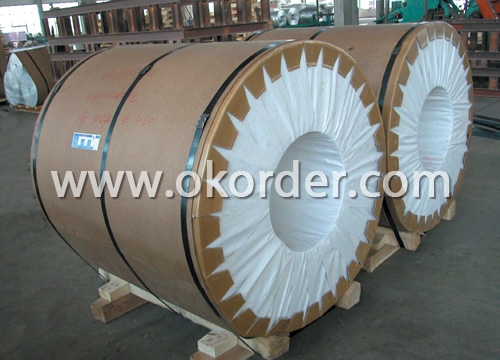
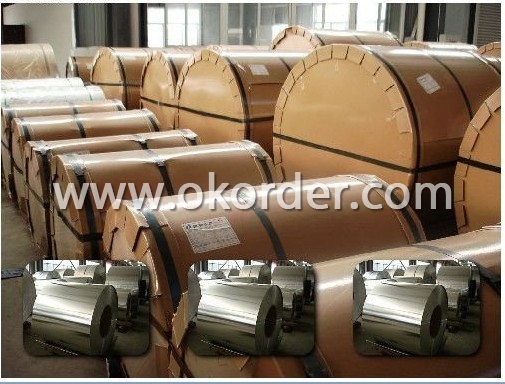
- Q: Is it possible to create jewelry using pure aluminum?
- <p>Yes, pure aluminum can be used to make jewelry, but it's not commonly used for fine jewelry due to its lower value and potential for oxidation. While it is lightweight and affordable, it lacks the luster and durability of precious metals like gold, silver, or platinum. Aluminum can tarnish and may cause allergic reactions in some individuals. It is more commonly used in costume jewelry or for specific designs where its properties are advantageous.</p>
- Q: What limitations are there regarding the use of aluminum in food and beverage packaging?
- <p>Yes, there are restrictions on using aluminum in food and drink packaging. Aluminum can leach into food or beverages, potentially causing health issues. Regulations vary by country but generally aim to minimize exposure. For instance, the U.S. FDA has guidelines on the use of aluminum in food contact substances. In Europe, the European Food Safety Authority (EFSA) sets limits on aluminum migration into food. Manufacturers must comply with these regulations to ensure safety and avoid health risks associated with aluminum exposure.</p>
- Q: Is it possible to construct vehicles using aluminum?
- <p>Yes, aluminum can be used to make cars. It is known for its lightweight, high strength, and corrosion resistance, which are desirable properties in automotive manufacturing. Aluminum alloys are commonly used in car bodies, engines, and other components to reduce weight, improve fuel efficiency, and enhance performance. Additionally, its recyclability makes it an environmentally friendly choice for vehicle production.</p>
- Q: What are the potential dangers of utilizing high-purity aluminum powders in industrial settings?
- <p>Yes, there are risks associated with using high-purity aluminum powders in manufacturing processes. These powders can be highly reactive, especially when in fine particle form, and pose a risk of dust explosions if they come into contact with an ignition source. Additionally, aluminum dust can be a respiratory hazard, potentially causing health issues if inhaled. Proper handling, storage, and safety measures are crucial to mitigate these risks.</p>
- Q: This question asks about the methods to determine the safety of a specific brand's aluminum products.
- <p>To determine if a particular brand of aluminum products is safe to use, one should look for certifications and standards compliance. Check if the brand has certifications such as ISO 9001 for quality management systems or specific safety certifications relevant to aluminum products. Look for compliance with safety standards like ANSI, ASTM, or EN standards. Additionally, research customer reviews and testimonials, and consider third-party lab testing results. It's also important to inquire about the manufacturing process to ensure it adheres to environmental and health safety regulations. Lastly, consult with industry experts or regulatory bodies for their assessment of the brand's safety practices.</p>
- Q: Is it possible to use aluminum as a fuel source?
- <p>Aluminum can be used as a fuel in certain applications, particularly in the form of aluminum powder. It has a high energy density and burns at high temperatures, making it suitable for solid rocket propellants and thermite reactions. However, it is not commonly used as a traditional fuel like gasoline or coal due to its reactivity and the challenges in handling and storage. Aluminum combustion also produces aluminum oxide, which can be harmful to the environment if not managed properly.</p>
- Q: This question asks about the methods to guarantee that the aluminum content in products is within safe limits.
- <p>To ensure that products do not contain excessive amounts of aluminum, implement a strict quality control process. This includes sourcing raw materials from suppliers who adhere to strict aluminum content limits, conducting regular testing of products using advanced analytical techniques such as Inductively Coupled Plasma Mass Spectrometry (ICP-MS) or Atomic Absorption Spectroscopy (AAS). Establishing and following Good Manufacturing Practices (GMP) is crucial, along with continuous monitoring and improvement of production processes. Additionally, staying updated with regulatory guidelines and setting internal limits that are below the legal maximum levels can help maintain safety and compliance.</p>
- Q: Is there any risk to health from consuming food wrapped in aluminum foil?
- <p>Eating food wrapped in aluminum foil generally does not pose significant health concerns under normal circumstances. Aluminum is a stable element and does not leach easily into food at room temperature. However, at high temperatures, such as during grilling or baking, small amounts of aluminum might migrate into food. Most studies suggest that the amount of aluminum ingested from food wrapped in foil is minimal and not harmful. Nonetheless, it's advisable to avoid wrapping acidic foods or using foil in direct contact with food at high temperatures to minimize any potential exposure.</p>
- Q: This question asks for common uses of aluminum foil.
- <p>Aluminum foil is used for a variety of purposes. It is commonly used in cooking and baking to wrap foods, cover dishes to retain heat or prevent splattering, and line baking sheets for easy cleanup. It's also used for food storage, preserving freshness by sealing in moisture and flavor. In addition to culinary uses, aluminum foil is utilized in arts and crafts, insulation, and as a barrier in some packaging to protect products from light and air. It's also employed in scientific experiments and industrial processes due to its reflective and heat-conducting properties.</p>
- Q: Is aluminum a suitable material for use in electronic components or devices?
- <p>Yes, aluminum is used in electronics, primarily for its excellent thermal conductivity and electrical conductivity. It is commonly used in heat sinks to dissipate heat from electronic components, such as CPUs and power transistors. Additionally, aluminum is utilized in capacitors and as a conductor in wiring due to its low electrical resistance. However, it is not used as widely as copper for electrical conductivity applications due to copper's superior properties.</p>
Send your message to us
Aluminum High Quality Aluminum Foil Stock
- Loading Port:
- China Main Port
- Payment Terms:
- TT or LC
- Min Order Qty:
- 20Tons m.t.
- Supply Capability:
- 10000Tons Per Month m.t./month
OKorder Service Pledge
OKorder Financial Service
Similar products
Hot products
Hot Searches
Related keywords
